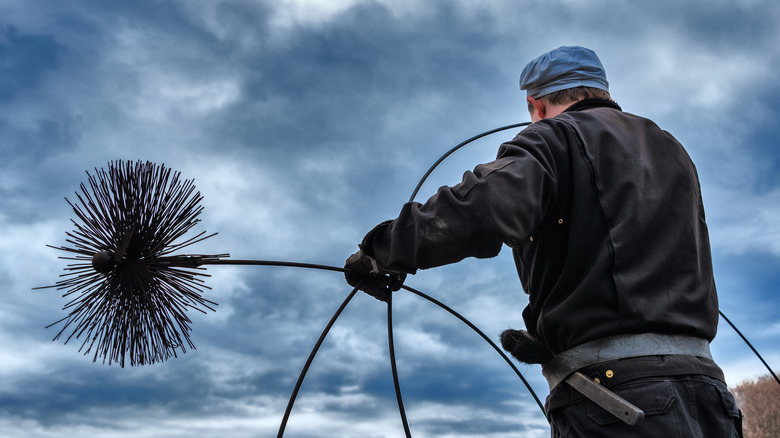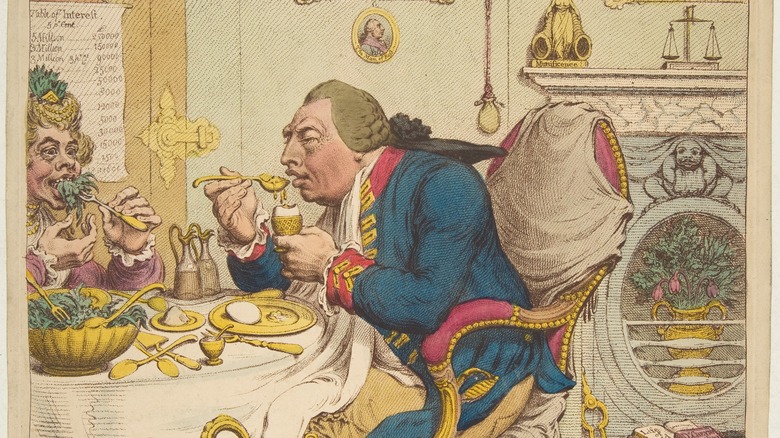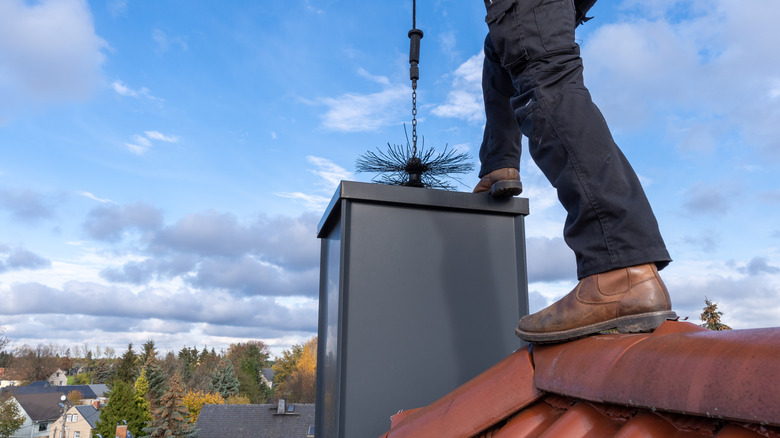Why Chimney Sweeps Are Considered Lucky
You may remember good old Bert (played by Dick Van Dyke), the chimney sweep from Disney's "Mary Poppins," singing "Chim Chim Cher-ee" from your childhood (via Disney). He chimes lyrics like "A sweep is as lucky, as luck can be," and "good luck will rub off when I shake 'ands with you, or blow me a kiss, that's lucky too." Did you ever wonder what he was talking about?
Well, he didn't just want handshakes and kisses blown to him (although we wouldn't blame him after cleaning dark, dirty chimneys all day long). According to European legend, chimney sweeps truly are lucky (via Los Angeles Times). Some believe you can make wishes around them that will actually come true. But they're not some sort of genie, bestowed with the magical power of granting wishes. There are certain rituals one must follow to have a sweeps' luck rub off on them, blanketed in centuries-old history (via Fire Safe Chimney Sweeps).
The story of King George III
According to European folklore, a chimney sweep once saved King George III from being thrown off his horse to a possibly fatal fall, in front of a large crowd (via Fire Safe Chimney Sweeps). As the story goes, a dog that crossed paths with the king's procession excited the horses by biting their ankles. Before the king could fall to his doom, a chimney sweep from the crowd sprung to action, and calmed the horse the king was riding by grabbing its halter and reining it in.
From then on, King George III declared that chimney sweeps were lucky. Because of this, it became tradition to invite chimney sweeps to weddings, as their blessing was meant to bring good luck and long-lasting happiness. It may seem nice to be somewhat of a living rabbit's foot that everyone wants to have around, but believe it or not, chimney sweeps haven't been known to enjoy the superstition, and here's why (via Los Angeles Times).
Keep your hands to yourself
In a time when most houses, buildings and apartments in Europe were mainly powered by individual coal stoves, chimney sweeps were highly sought after, and very busy (via Los Angeles Times). Often wearing all-black clothing with a white hat (that didn't stay white for long), they sported belts to carry their paperwork and tools — which consisted of a coiled leather rope and steel brush. They were sent into dark, sooty chimneys, and before respirators, jump suits, eye and ear protection, gloves, safety shoes, and knee pads were the norm for the trade (as they are today), it was a pretty dangerous gig that was not very glamorous (via Chimney and Wildlife Specialists).
After a long day's work cleaning dirty chimneys, you probably wouldn't want someone poking at you, rubbing your sleeves, or slinging wishes in your direction. But that's exactly what people have done through the ages, when in the presence of chimney sweeps. Superstitious people believe rubbing a button and making a wish at the sight of a chimney sweep, or touching one of their dirty sleeves, will bring good luck (or even make said wishes come true). But despite it not being chimney sweeps' favorite thing, these customs have been upheld in their presence for centuries (via Fire Safe Chimney Sweeps).


